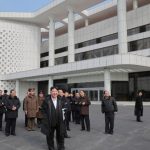Long lines of frustrated commuters and motorists stretched across fuel stations in Mali’s capital, Bamako, on Tuesday, as the city grapples with a growing fuel crisis caused by a militant blockade.
The shortages stem from a blockade launched in early September by Jama’at Nusrat al-Islam wal-Muslimin (JNIM), a militant group affiliated with al-Qaida. The group has targeted fuel tankers traveling from Mali’s coastal neighbors, Senegal and Ivory Coast, cutting off critical supply routes to the landlocked nation.
“It is only a few stations that have it,” said Bakary Coulibaly, who resells fuel at a roadside kiosk. “Most of us are just waiting.”
At one station in central Bamako, crowds of people on motorcycles and in cars packed tightly around fuel pumps, with rising tempers leading to verbal disputes and even physical confrontations.
Douga Barry, a motorcycle taxi driver, expressed resilience despite the growing hardship.
“We know we are at war, whatever the situation, and we are ready to take it on,” Barry said. “Even if we have to stop our motorcycles to walk, we are ready for it.”
A Nation Under Pressure
The fuel blockade highlights Mali’s vulnerability as a landlocked country reliant on overland fuel imports for transportation, electricity, and daily life. While Mali is one of Africa’s top gold producers, the country remains economically fragile, ranking among the least developed nations in the world. Nearly half the population lives below the national poverty line, and the current crisis threatens to worsen living conditions further.
The government has yet to issue a comprehensive public response to the escalating situation. Humanitarian organizations warn that if the blockade continues, it could affect not just transport and commerce, but also healthcare, food distribution, and emergency services.
JNIM’s attacks on logistics and fuel infrastructure form part of a broader campaign to undermine state authority in Mali and neighboring Sahel countries. The group has expanded its operations in recent years despite regional counterterrorism efforts.



